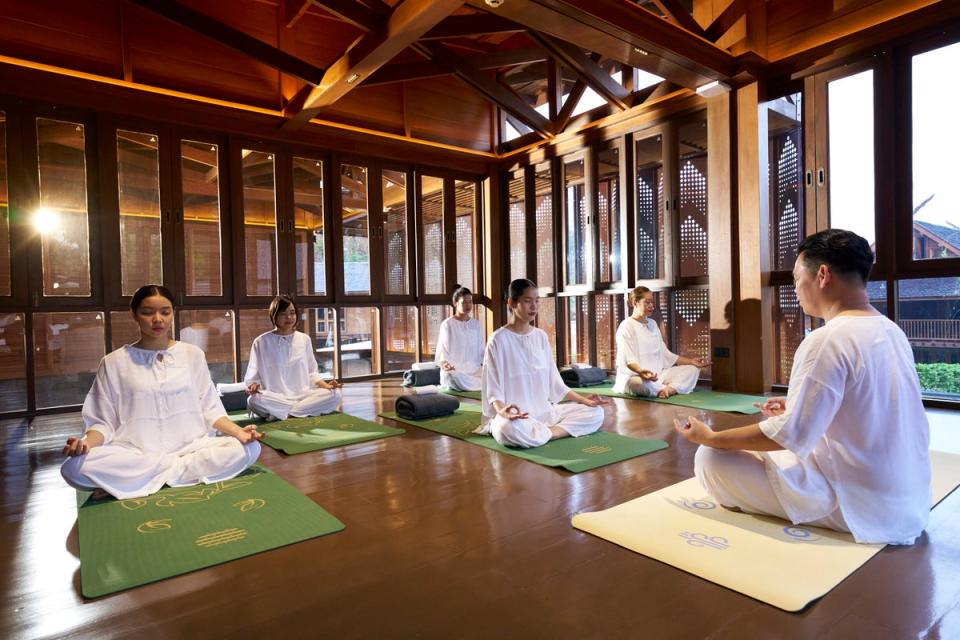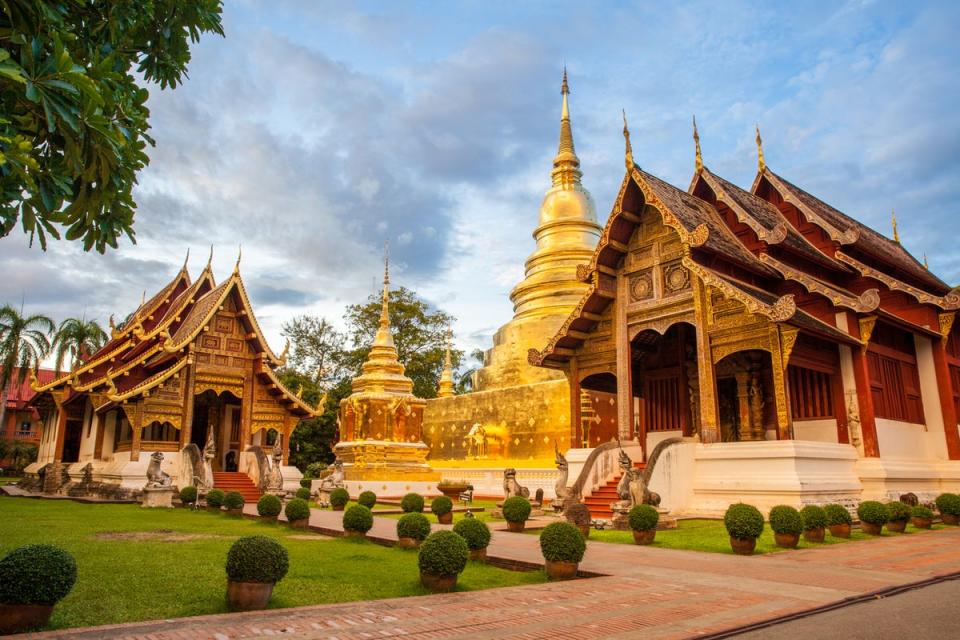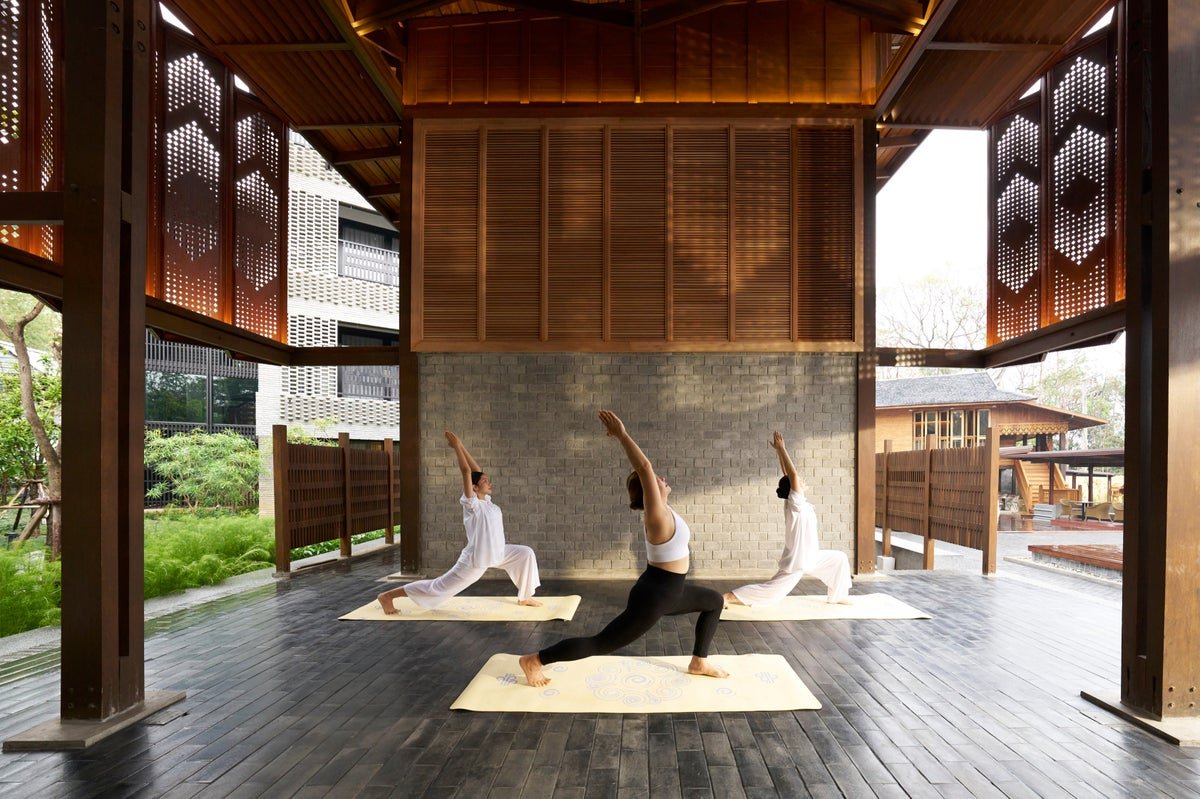A week of silence may sound like a dream to anyone exhausted by the constant stimulation of modern life, but the reality of a silent retreat may be quite different to what you imagined.
Beyond the immediate peace, there remains a lack of distractions, escape routes, etc. Sitting in meditation every day gives thoughts and feelings (both physical and emotional) that would normally go unnoticed or be pushed aside the opportunity to suddenly bubble to the surface.
There is no escape, so the only option is to face it head on. It is a challenge that may frighten many, but which may ultimately be beneficial. For many, this particular form of sensory deprivation has been a transformative experience, leaving many so inspired that they want to try it again.
“Remaining silent for such an extended period of time has been one of the most profound experiences for me,” says Dr. Aymon Kopela, a pioneer in discovery medicine and author of the book The Science of Silence. Inquiry: Rewiring the Senses.
“Silent meditation allows us to rest and reset the body and mind, fostering a deeper connection with ourselves and increasing self-awareness and insight. It is a restorative process that not only quiets the external noise, but the internal noise as well, resulting in mental clarity, physical healing and deep rejuvenation.”
Click here for details Wellness Trip:
But this is by no means a normal vacation. It can be tough. After all, when was the last time you sat in complete silence for an extended period of time? Unless you have a mental illness or physical pain that makes sitting still all day impossible.
For the world-famous Dhamma Retreat, held in Herefordshire, England, and with centres around the world, you’ll be prepared to sit in Vipassana meditation, one of India’s most ancient meditation techniques, from 4am to 9pm every day.
Beyond pain, Kopera explains that this can present unique challenges, including a phenomenon known as the “monkey mind,” in which thoughts constantly jump from one to the next.


“At times, emotional upheaval may resurface, but if managed properly, it is a healing process. I have observed patients with chronic illnesses and life-threatening conditions benefit positively from this practice.”
You can join a full course in monk mode, like a Dhamma retreat, but there are luxury options that offer a softer experience. Deep meditation at Aleenta Retreat in Chiang Mai, northern Thailand, is based on the same Buddhist Vipassana practice as the Dhamma course. But here, the approach is customized to your needs and experience level over three, five or seven days at a five-star resort in Thailand’s spiritual heartland. The “light” option creates an accessible path to the transformative power of mindfulness, while the second option offers a more rigorous mental training and includes a meditation practice at the nearby Wat Lam Peon temple.
While a quieter, more holiday-like retreat might sound more appealing, the simplified and fairly demanding 10-day Dharma Vipassana meditation remains a very popular option. Not only do participants often describe these residential courses as “life-changing,” but they also operate on a “pay what you can” system – you don’t even have to cover the costs of food and accommodation if you’re really strapped for cash. Of course, to secure a place, you’ll need to apply as soon as dates are announced.


The benefits of spending time in silent meditation are more than anecdotal. Used as a spiritual and healing tool for more than 5,000 years, research shows that Vipassana may reduce stress, anxiety, and depression. One study looking at the effects of a seven-day Zen meditation retreat also found that meditators had improved focus and enhanced neuroplasticity (the brain’s ability to adapt and grow new pathways) after the course.
But how does this apply to real life? Shannon Brown, co-founder of Scottish wellness retreat space CAIM, had been drawn to the practice for years so she signed up for a 10-day Dhamma Dipa Vipassana meditation course in Herefordshire.
“I didn’t do much preparation as I do yoga and meditation occasionally, but by the third day I wished I had,” says Shannon. “I battled frustration and struggled to calm my mind for the first few days. In fact, it was so hard to surrender to the experience that I nearly gave up a few times.
“But by the fifth day, the anger started to set in. This came as a surprise as I’m normally a calm, happy person. I felt so overwhelmed that I wanted to flip a table and scream.”


Like many of the participants who brave the long journey, the circumstances were almost overwhelming for Shannon, but through sheer willpower she was able to refocus and overcome the challenges she faced, alone.
“It was really hard. I’d been to an ayahuasca ceremony in Peru and to my surprise, this was just as hard,” Shannon recalls.
“But once I managed to get through the emotional and physical discomfort that was coming over me, I felt amazing. Day 5 was the hardest, but by day 6 I felt blissful despite the difficulty. It was as if the mud of sedentary life that had been lying dormant deep in my foundation had been stirred up and thrown out. I gained such beautiful clarity, peace and gratitude.”
You don’t have to be a Buddhist to attend a silent meditation class, nor do you have to immediately (or forever) opt for a long or abbreviated course to quiet your mind and focus your energy on harmony and happiness, which are the true ultimate goals. But to get the most out of this new and ancient trend, you need to be willing to breathe, release rigid thought patterns, and get in touch with yourself; with your innermost thoughts; to move through anger, sadness, and negativity, and finally find liberation on the other side.
How to do it
Alina
Retreat prices start from 17,000 baht (£380) per night for a single room or 25,000 baht (£560) per night for a double room, and include accommodation, airport transfers, two daily meditation sessions, up to two exercise classes per day, “wellness cuisine,” comprehensive health checks and one nightly spa treatment for the duration of the booking. Arienta
Daruma
Dhamma courses are held all over the world and operate on a “pay what you can” system. In the UK, you can visit Dhamma Dipa, an 11-acre site in rolling farmland between Hereford and Ross-on-Wye. Accommodation is shared and meals are included. Returning students who want to try a longer course (20 days) can visit Dhamma Padana in Herefordshire, where each student lives individually and meditates in a single room with bathroom and a small private meditation room. There are also two-day courses designed for children (8-11 years) and teenagers (12-18 years).
read more: A weekend trip to this wellness retreat in Bucharest costs the same as a day pass to a London spa

